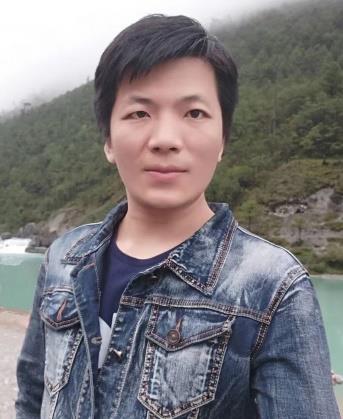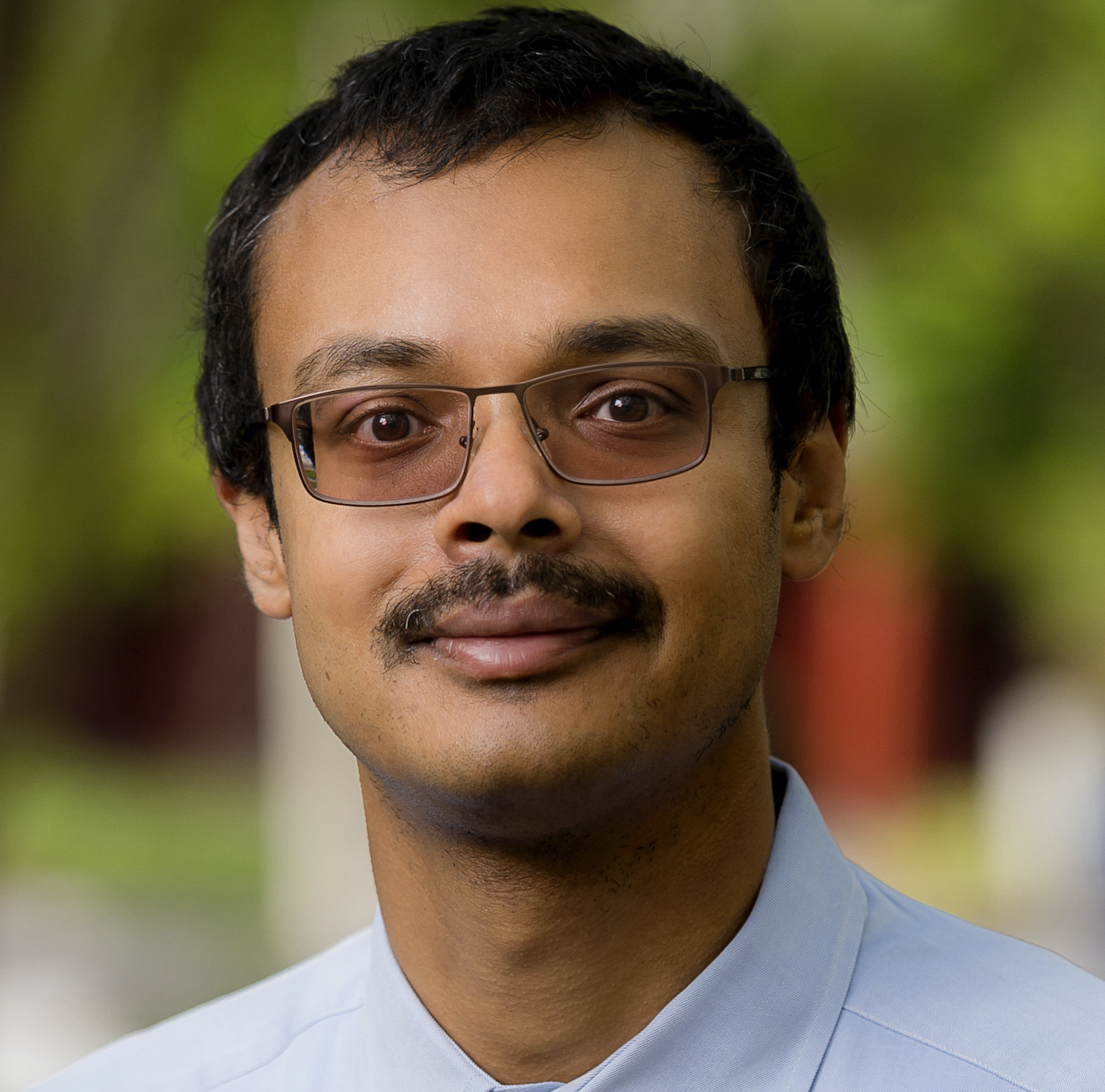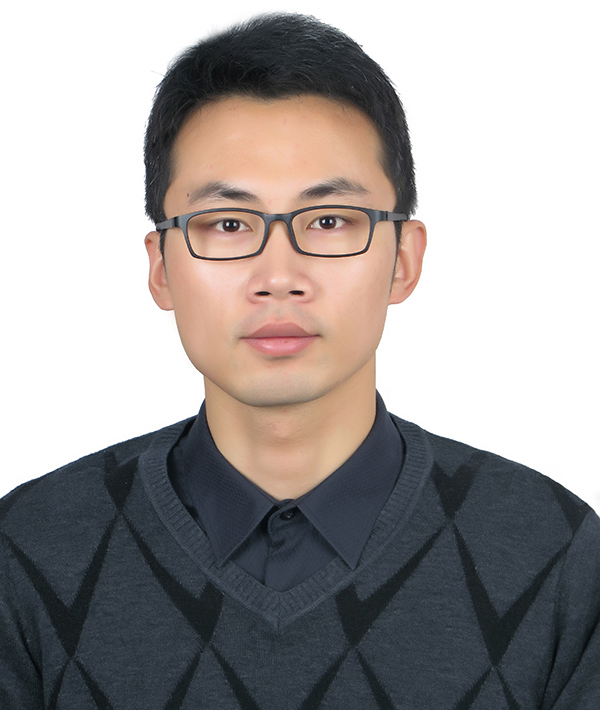CVM 2024 Conference Program
Keynote Speakers

Reinhard Koch, Kiel University, Germany
Title:
Bridging the gap between 2D and 3D - 30 years of research in camera-based 3D scene reconstruction
Abstract:
Computing a truthful reconstruction of 3D scenes from camera images has been an eminent topic in computer vision for at least 30 years. Ever since the groundbreaking work of Longuet-Higgins in the 1980th and Faugeras, Hartley and Zisserman and others in the 1990th, researchers have investigated solutions for this ill-posed problem. Today, deep learning approaches take over, but are still in need of basic reconstruction tasks. In my talk I will revise the approaches of this research area, from calibrated and uncalibrated Structure from Motion and SLAM, over special camera setups like Lightfield cameras or RGB-D Systems, to applications like 3D television and augmented reality.
Speaker's Biography:
Prof. Reinhard Koch is a professor of computer science at Kiel University since 1999 and an internationally recognized expert in 3D computer vision, visual computing and 3D scene reconstruction from different image modalities, structure from motion, time-of-flight cameras and plenoptic imaging systems. His work was honoured with numerous awards, like the David Marr Award (the highest award in computer vision), Olympus-Award, and numerous best paper awards. He served the community as chair and co-chair of the German Pattern Recognition Society and as German delegate to the International Association for Pattern Recognition (IAPR, a prestigious organization driving advancements in pattern recognition and artificial intelligence worldwide) for nine years and was elected IAPR fellow. Since 2016 he also serves as vice dean and dean of the faculty of engineering at Kiel University.

Peng-Shuai Wang, Peking University, China
Title:
Octree-based 3D Neural Networks for Graphics
Abstract:
3D deep learning has been widely applied in graphics to understand, generate, simulate, and render 3D data. However, 3D data comes in diverse representations, such as point clouds, voxels, and meshes. For different 3D representations and tasks, researchers typically design separate neural network architectures. This approach significantly increases the complexity of network design and hinders the development of general 3D intelligent models. In this talk, I will introduce my work towards developing a unified 3D deep learning framework with octree-based neural networks for graphics, including octree-based CNNs, GNNs, and transformers. The core idea is to leverage the sparsity of 3D data to constrain neural network computations to important 3D regions within an octree-based 3D representation. These efforts enable a unified, efficient, and effective 3D deep learning framework, greatly improving the efficiency of developing 3D learning methods and potentially advancing the development of general 3D intelligent systems.
Speaker's Biography:
Dr. Peng-Shuai Wang is a tenure-track Assistant Professor at Peking University. Before joining Peking University in 2022, he was a senior researcher in Microsoft Research Asia. He got Ph.D. degree from the Institute for Advanced Study at Tsinghua University in 2018, under the supervision of Dr. Baining Guo. His research interest includes deep learning, geometry processing and computer graphics. He was awarded the AsiaGraphics Young Researcher Award in 2023 and the AI 2000 Most Influential Scholar Award Honorable Mention by AMiner in recognition of my contributions in the field of Computer Graphics from 2012 to 2022.

Ravi Ramamoorthi, University of California, San Diego, USA
Title:
Image-Based Rendering: From View Synthesis to Neural Radiance Fields and Beyond
Abstract:
Applications in augmented reality, 3D photography, immersive experiences and appearance acquisition require solving the view synthesis problem - given a few images of an object or scene of interest, how can we synthesize images from new viewpoints. This is a fundamental problem in computer vision and graphics, often referred to as image-based rendering, and can be encapsulated as reconstructing the light field of all light passing through a scene from a set of observations. In this talk, I will briefly describe the early history of the problem, and a series of efforts my group has made in light field synthesis from sparse images, ultimately leading to the now widely used neural radiance field representation. I discuss the impact of this work and follow-ups, leading to newer work from my group on personalized avatars, enabling real-time radiance fields or live 3D portraits from a single image.
Speaker's Biography:
Ravi Ramamoorthi is the Ronald L. Graham Professor of Computer Science at University of California, San Diego. He is currently the Director of UC San Diego Center for Visual Computing. He got his Ph.D. in Computer Science from Stanford University in 2002. His research interest includes computer graphics, computer vision and signal processing. His work has led to more than 150 publications, including more than 75 SIGGRAPH or TOG papers, and has been recognized in 2005 by a Sloan Fellowship and an NSF CAREER award, in 2007 with an ONR Young Investigator Award and the ACM SIGGRAPH Significant New Researcher Award, and more recently in 2023 by an Frontiers of Science Award. He is a fellow of both IEEE and ACM, and was selected into the SIGGRAPH Academy in 2019.
Workshop Speakers

Kevin Romond, Miramar Creative Center, Victoria University of Wellington
Title:
Building a high-quality performance capture pipeline
Abstract:
This talk will be an overview of how we developed a fully-featured performance capture workflow, capable of being operated by 1 or 2 operators. The talk will include an overview of performance capture goals, our approach to development, and outcomes from the effort.
Speaker's Biography:
Kevin Romond is an expert practitioner in performance capture, virtual production, animation, and visual effects. He has over 20 years of experience producing computer generated visual effects for feature films. His credits include King Kong (2005), Avatar (2009), Avengers (2012), The Planet of the Apes series, and many others. Kevin has spent the last 8 years working with real-time technologies for immersive experiences, VFX and filmmaking use cases. Kevin is currently Director of the Miramar Creative Centre and Senior Lecturer in Animation and Visual Effects. He has a BFA from the School of Visual Arts in New York City.

Xuequan Lu, La Trobe University, Australia
Title:
AI-Based 3D Visual Computing
Abstract:
AI-based 3D visual computing has attracted noticeable attention recently, in terms of various visual tasks and multi-disciplinary research. At first, Dr Xuequan Lu will briefly introduce himself, explain 3D visual computing. Then he will introduce one of his representative recent works on 3D point cloud data, with elaborating motivations, the proposed technique and showing experimental results.
Speaker's Biography:
Dr. Xuequan Lu is currently a Senior Lecturer (equiv. to Associate Professor in North American System) in La Trobe University in Australia. His research interests are AI-based visual computing, with a focus on 3D vision (processing and analysis), VR/AR, and the applications to interdisciplinary digital health. He achieved an Outstanding PhD Award when graduated at Zhejiang University (only awarded to 2 students in 2016). He also achieved the School's Research Award in 2022. He is invited to act as an Associate Editor in IEEE TNNLS (top journal, JCR Q1, IF: 10.4), Neurocomputing (JCR Q1, Impact factor: 6.0) and the Visual Computer Journal (JCR Q1, Impact factor: 3.5). He serves as a Guest Editor in IEEE Intelligent Systems (JCR Q1, 1st AI journal in IEEE). In addition, he is the Program Chair for the 37th CASA 2024, the 10th IEEE ICVR 2024 and the 9th IEEE ICVR 2023.

Nadia Pantidi, School of Design Innovation, Victoria University of Wellington
Title:
User Experience as a Driver for System Development
Abstract:
My research spans the areas of Computer Science, Interaction Design and Psychology with a particular focus on considering users' experience for the design and evaluation of technologies. Having worked across a number of application areas such as health, education, citizen science and across a range of technologies e.g. touch screens, mobile apps and more recently immersive reality systems, I have experienced first-hand the significant benefits of involving users in the development of new technologies. In this talk, I will discuss, through examples of my work, how taking a user-centered, holistic approach for the design and evaluation of interactive systems can offer deeper understanding of people's practices, needs and values, lead to novel insights for the assemblage of systems and people, and support ecological validity.
Speaker's Biography:
Dr. Nadia Pantidi (BA, MEng, PhD) is a Senior Lecturer in Interaction Design at the School of Design Innovation, Te Herenga Waka-Victoria University of Wellington (THW-VUW). Her research is in the area of Human Computer Interaction (HCI) and focuses on participatory and user-centered approaches for the design and evaluation of digital systems. Her work is regularly published in high impact international conferences and journals in the field of HCI, such as the Association for Computing Machinery (ACM) Conferences on Human Factors in Computing Systems (CHI), Designing Interactive Systems (DIS), Computer Supported Cooperative Work (CSCW). She has held several chairing roles in HCI venues and is currently the elected Chair of the ACM SIGCHI New Zealand Chapter. Prior to joining THW-VUW, she was a Lecturer in Human Computer Interaction at University College Cork, Ireland, and a post-doctoral researcher at the Mixed Reality Lab at the University of Nottingham, UK.

Alex Doronin, School of Engineering and Computer Science, Victoria University of Wellington
Title:
Light Transport in Turbid Media: Modern Applications and Synergy with Machine Learning
Abstract:
A fundamental understanding of the complex effects of wave propagation in turbid media is essential for applications in computer graphics, biomedical optics, and 3D visualization. This requires precise computational techniques to accurately account for the multiple scattering of light. In response to this need, we introduce a novel Monte Carlo algorithm optimized for energy-efficient processors. This algorithm distinguishes itself by surpassing existing solutions in both accuracy and performance. Our implementation focuses on photon transport simulations, leveraging the low-power yet high-performance capabilities of Apple's M-family chips. Additionally, we explore the integration of Machine Learning (ML) techniques to develop an efficient forward solver for the Radiative Transport Equation. This integration highlights the superior performance of select ML models in this domain, demonstrating our approach's potential to significantly advance the field.
Speaker's Biography:
Dr. Alexander Doronin is a Senior Lecturer within the School of Engineering and Computer Science at Victoria University of Wellington (New Zealand). He received his PhD in Biophotonics and Biomedical Imaging from University of Otago, New Zealand in 2014 and went on to a semi-industrial postdoctoral fellowship to Yale University, USA. His research interests are interdisciplinary and lie at the interface between Computer Graphics, Biomedical Optics and most recently Artificial Intelligence focusing on modelling of light transport in turbid media, development of novel optical diagnostics modalities, physically-based rendering, optical measurements/instrumentation, acquisition and building of realistic material models, colour perception, translucency, appearance and biomedical visualization. He has extensive recognized experience in the design of forward and inverse algorithms of light scattering in turbid tissue-like media simulations and created a generalized Monte Carlo model of photon migration which has found a widespread application as an open-access computational tool for the needs of light transport communities in Biophotonics, Biomedical Imaging and Graphics.